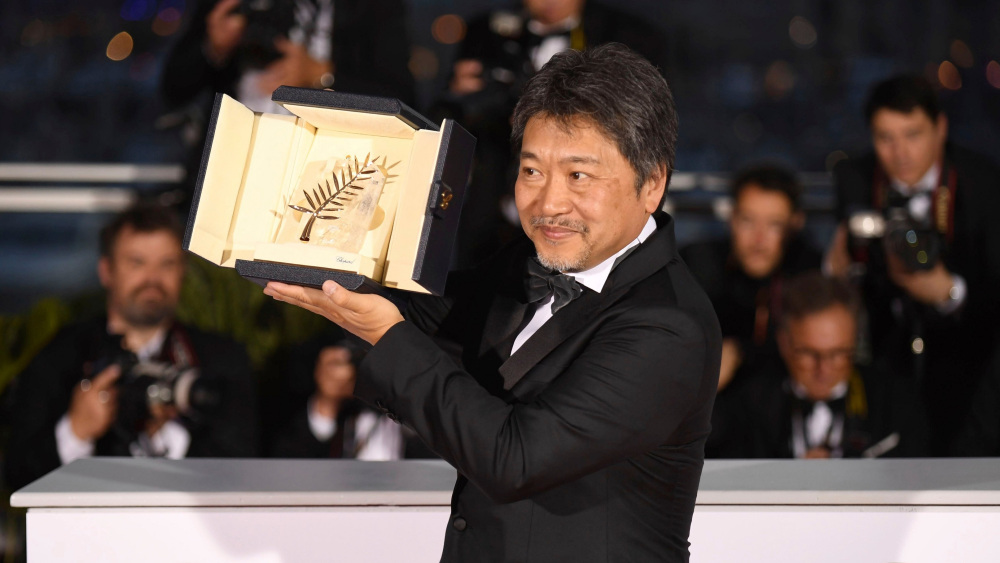Azeem Rajulawalla, BA History
Image credit: ARTHUR MOLA
This year’s winner of the big prize Palme D’Or at the Cannes Film Festival went to Japanese filmmaker Hirokazu Kore-eda’s ‘Shoplifters’, a social drama about a makeshift, poverty-stricken family relying on shoplifting to survive in Tokyo. The first Japanese film to win the Palme D’Or since 1997, Jury president Cate Blanchett said “we were completely bowled over by ‘Shoplifters’; how intermeshed the performances were with the directorial vision”. From my own viewing, I can confirm Blanchett was right. Heartwarming and heartbreaking, ‘Shoplifters’ takes social issues and addresses them not with a grand political statement, but instead, through genuine human connection and relationships. It takes a humanist filmmaker like Kore-eda to approach the subject matter so effectively and intimately.
I recently had the opportunity to interview Kore-eda at the BAFTA offices in Piccadilly, alongside my podcast* co-host, Adam Solomons. It was a short interview as Kore-eda was preparing to rush off to catch the Eurostar immediately after. Nevertheless, the brevity did not impact the meeting’s profundity.
Pull quote: Shoplifters takes social issues and addresses them not with a grand political statement, but instead through genuine human connection and relationships.
Kore-eda enters the room with his translator in a slight rush, clutching his bag in his left hand and searching for the printout of his Eurostar ticket with his right hand. He finds the crumpled copy and holds it up in relief, to which his translator comments in Japanese. After this, he’s able to relax. He greets us warmly, with a soft handshake and a gentle smile, and sits down. Although the interview is a short one, and likely with the least experienced interviewers he’s had during this press tour, he is leant forward, giving his full attention in preparation.
We opened by asking him about morality in the film, and whether the grey areas that the characters inhabit was his primary thematic focus of the film. After each question is translated into Japanese, there’s a short moment of silence as Kore-eda attempts to articulate himself.
“There wasn’t a deliberate intentional morality tale,” Kore-eda says, “But as I was filming, the moment the family begins to disintegrate is when the boy starts feeling guilty about what he’s doing and doubting what he’s doing. That’s when the family starts to disintegrate internally. But also, that’s the boy’s morality. There’s also a morality from the police, and the outside morality about what you could say as ‘justice’, but those two moralities, I think, you could say as different moralities.”
Kore-eda has previously spoken about how he was interested in how people were greatly frustrated with the idea of petty crime such as shoplifting and pension, yet were less outraged by more serious white-collar crimes. It is clear from his film he means to change the opinions, giving us an insider’s look into something which, from the outside, would seem very strange and alien to us. From this, he finds the common humanity in us all. It is this same artistic quality that Kore-eda shares with one of his influences, Ken Loach. Loach recently won the Palme D’Or in 2016 for “I, Daniel Blake”, a social family drama about people living on unemployment and support allowance. When asked about what he admires about Loach’s work, a beaming smile emerges on Kore-eda’s face. He says that he admires “the way (Loach) views humanity, and how generous that is”. Kore-eda stresses that Loach “maintains a low viewing point — he’s not looking down — but he maintains a grounded position”. It’s clear that this is something Kore-eda also channels in his own work, and it creates a naturalism which is maintained visually and through the actors.
One method Kore-eda used to create this naturalistic acting was by not giving the actors a full understanding of what they were doing. “They were never given a script,” he says, “So they came to the shooting without knowing what the story is. So, they’d come on set and we’d tell them what we’re going to do, what we’re going to film. So that’s quite fun to be around, but eventually the grandmother dies, so for them it’s fun to begin with, and then, you know… Of course it’s fiction! But I shoot in a way so they can live that moment as we shoot, that’s how I do it. And it’s almost like life”.
Immediately after our interview, Kore-eda grabbed his coat and bag and was whisked away to catch his train to Paris, off to make what is likely to be his next masterpiece, starring Ethan Hawke. In the meantime, it’s essential that his most recent gift to us gets the audience it deserves.
‘Shoplifters’ is out in cinemas now.
*You can listen to Pod Fuzz, my podcast on films, on Spotify, Apple Podcasts and Soundcloud now.
